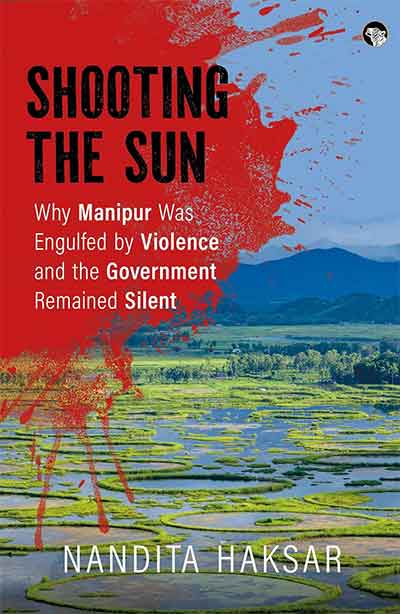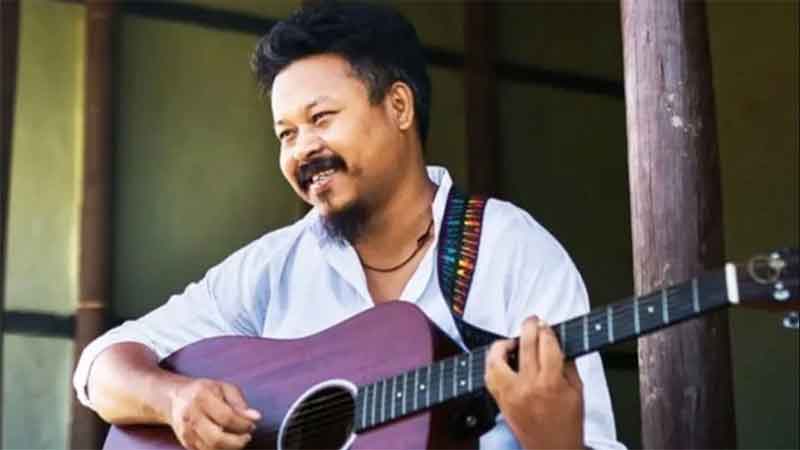Vikalp Sangam Core Group’s response to the Manipur crisis is based on the fundamental principles of peace and of the wellbeing of all people and of the earth and all its life.

We, the undersigned members of Vikalp Sangam (Alternatives Confluence) Core Group, consisting of over 80 organisations and networks across India, are shocked and outraged to witness the ongoing Manipur conflict, and even more so the lack of a coherent, efficient and timely response of the state and central governments. The refusal of the Prime Minister to engage with the situation (barring one statement about one incident) in a sensitive state with a history of conflict, and sharing its border with Myanmar in the middle of a civil war, is unacceptable. It is now five months of ongoing ethnic conflict between the two major communities, the majority Meitei group and tribal Kuki minority. The reports received so far indicate at least 200 confirmed deaths/murders, nearly 200 villages gutted, 70,000 houses and 359 places of worship burnt, a very large number of vehicles damaged/destroyed and more than 70,000 persons displaced, including very young, very old, sick and disabled. More than 10000 children are in relief camps for five months losing their education. The internet has been shut down for more than 3000 hours. The facilities in the relief camps are inadequate. 4000 weapons and 50000 rounds of ammunition have been looted from police and state armoury. There are no Meitei families in Churachandpur and there are no Kuki families in Imphal now.
One of the most horrific incidents quite early on in the conflict (June 8) that should have already shaken the national conscience and galvanised the state into action, was the burning alive of two women, a Meitei and a Kuki, related by marriage, along with an eight year old boy with a bullet wound on their way to the hospital in an ambulance. But it did not. It was the exposure of the video involving two Kuki women and the consequent outrage by concerned citizens of the country that got politicians, police, media and others to sit up, and so reports of murder and rapes that have been going on for many months, are now getting some attention. However, it is quite clear that shame and honour still occupy a higher order of our attention than killing, and so even our outrage continues to have patriarchal underpinnings.
And yet the atrocity that went viral on social media at least broke the silence and invisibility, was neither the first nor the last of the targeted sexual violence against women on both sides of the conflict. The ongoing sexual violence, humiliation and rape of women as an instrument of war, burning alive and other ways of brutal murders of women, men and children has crossed all boundaries while communities vie with each other to shock and awe. The recent news of the abduction and murder of two young school children only confirms that the fires still rage.
There are various intelligence agencies including Research and Analysis Wing (RAW) and Army intelligence, working in Manipur. Surely these agencies must have known what is brewing. The issues could have been foreseen or settled amicably. There has to be an active collusion or a tacit support by powers that be to let the situation spiral so violently out of control. The ongoing mayhem could not have continued without such support of state institutions and the political leaders in power, for example the loot of armouries allowed to both sides by divided security forces and police and the continued smuggling of weapons from across the borders.
The conflict has worsened despite heavy militarization of Manipur under the Armed Forces Special Powers Act, 1958 and despite additional deployment of more than 40,000 central security forces in Manipur in the aftermath of the 3 May ethnic violence.
The indifference and total silence on the issue has not only been very devastating for the victims but also totally inexplicable in view of the fact that Manipur is a sensitive border state. And now the conflict has spread to Mizoram and Assam, where respective ethnic groups are expelling each other under threats of violence.
We understand that the conflict has ethnic, religious, gender and demographic dimensions, but most of all we feel there is a need to uncover how people in general, and especially the youth, might have been so cruelly misdirected to serve vested interests. There is a need to investigate all those who would benefit from such conflicts – the ethno-religious fanatics, RSS Shakhas training youth in communal hatred, the drug cartels, purveyors of toxic polarized politics, the land mafia or those who lust for minerals beneath ancestral lands. We fear that it is for the benefit of these vested interests that communities are inflicting untold violence on each other, and would have to live with both the guilt and the trauma, and the loss of their natural inheritance which they all share in common and would have preserved for their posterity.
Our demands to resolve the Manipur crisis are based on the fundamental principles of peace and of the wellbeing of all citizens and mother earth.
WE DEMAND
- Immediate dismissal of the present Chief Minister and formation of an all-party Government to help contain the situation and begin a process of healing.
- Action against all those in power who have willfully failed to stop the violence.
- The Government of India be held accountable for allowing such a situation. The Home Minister and the Prime Minister should own moral responsibility especially when they have been trying to showcase India as the mother of democracy in G-20.
- Accountability of all authorities to restore peace and start the process of justice and reconciliation, and not obstruct any peace initiatives by the citizens in Manipur or by those concerned elsewhere in the country.
- Immediate arrest of all perpetrators of sexual violence, murderers, looters and others who have committed heinous criminal acts, bringing these cases for fast-track legal redressal.
- The State and Central Govt should provide full support to the teams appointed by the Supreme Court to complete their enquiries.
- Disciplinary action against armed forces personnel and police personnel who allowed or instigated violence, and let the loot of armouries happen. The Army should be withdrawn in a phased manner except those contingents who are guarding the borders.
- The Government of India should control the Kuki as well as Meitei militants from unleashing violence on innocent civilians. All arms with civilians must be surrendered to the Police immediately and those who hold arms after a week must be arrested.
- Encouragement and promotion of peace committees and indigenous institutions for negotiations which may have more legitimacy than the currently discredited state institutions. Respected elders and leaders, especially women, who are considered above ethnic loyalties and have impeccable records, should be requested to guide the process of Peace and Reconciliation.
- Immediately form a Peace Building and Reconciliation Commission with at least 50% women representing every community in the state involving civil society, trade unions and Government employees who take oath for bringing peace. Active promotion of groups of women as peacekeepers, as against promotion of those who obstructed the security forces from doing their duty. Women working in Govt can be trained for this job to coordinate with civilian women groups.
- The government should support (financially and otherwise) the rebuilding and restoration of all destroyed places of worship.
- Consider appointing a retired Civil Servant with impeccable record and has served in North East as Chief Secretary for a period of one year and a few more Secretaries to restore peace and rehabilitate the affected.
- Ensure the return of those who had to flee their homes and habitat and provide financial compensation and socio-psychological support, in relation to the loss of lives and destruction of their homes and belongings. Provide Government jobs to at least one member of these affected families, especially to those who lost their family members.
- Stop land alienation, destruction of forests, and unsustainable exploitation of the natural wealth of the region immediately, and ensure that collective community rights to these are secured and sustained.
As constituents of Vikalp Sangam, we offer to help rebuild peace and co-existence in whatever way we can.
Endorsed by members of the Vikalp Sangam Core Group, listed below alphabetically. Vikalp Sangam is a process (see https://vikalpsangam.org/about-us/) to bring together movements, groups and individuals working on just, equitable and sustainable pathways for human and ecological well-being. We reject the current model of development and the structures of inequality and injustice underlying it, and promote alternatives in practice and vision. Over 80 movements and organisations across India are members. Endorsement of a collective statement does not necessarily imply agreement on all the contents, but support for its essence.
Contact: [email protected]
Signatories
Action for Community Organisation, Rehabilitation and Development (ACCORD)
AGRAGAMEE
Alliance for Sustainable and Holistic Agriculture (ASHA)
Alternative Law Forum (ALF)
Bhoomi College
Blue Ribbon Movement (BRM)
Centre for Education and Documentation (CED)
Centre for Environment Education (CEE)
Centre for Financial Accountability (CFA)
Centre for Pastoralism
Chalakudypuzha Samrakshana Samithi / River Research Centre
Chetna
CGnet Swara
ComMutiny- The Youth Collective
Dakshin Foundation
Deccan Development Society (DDS)
Deer Park
Development Alternatives (DA)
Desert Resource Centre (DRC)
Dhaatri Trust
Dharamitra
Ektha
Equitable Tourism Options (EQUATIONS)
Forest Rights Coalition – JK
Fridays for Future – India
Gene Campaign
Goonj
Greenpeace India
Ideosync Media Combine
Inner Climate Academy (ICA)
Margshala Foundation
Jagori Rural
Kagad Kach Patra Kashtakari Panchayat (KKPKP)
Kalpavriksh
Kriti Team
Ladakh Arts and Media Organisation (LAMO)
Let India Breathe (LIB)
Local Futures
Maadhyam
Maati
Mahila Kisan Adhikar Manch (MAKAAM)
Mahalir Association for Literacy Awareness and Rights (MALAR)
Mazdoor Kisan Shakti Sangathan (MKSS)
Movement for Advancing Understanding of Sustainability and Mutuality (MAUSAM)
National Alliance of Peoples’ Movements (NAPM),
National Campaign for Dalit Human Rights (NCDHR)
National Coalition for Natural Farming (NCNF)
Nirangal Charitable Trust
Non-timber Forest Produce Exchange (NTFP-E)
North East Network (NEN)
Organic Farmers Market (OFM)
Ovais Sultan Khan
People’s Resource Centre (PRC)
Peoples’ Science Institute (PSI)
reStore
Revitalising Rainfed Agriculture Network (RRA)
Rythu Swarajya Vedika
Sambhaavnaa
Foundation for Economic and Ecological Development (FEED)
Sahjeevan
Sahodaya Trust
Sangat
School for Democracy
School for Rural Development and Environment (SRDE)
Shikshantar
Snow Leopard Conservancy India Trust (SLC-IT)
Sikkim Indigenous Lepcha Tribal Association
Social Entrepreneurship Association (SEA)
Society for Promoting Participative Ecosystem Management (SOPPECOM)
South Asian Dialogue on Ecological Democracy (SADED)/ Harit Swaraaj Samvaad
The Himalaya Collective
Timbaktu Collective
Titli Trust
Travellers’ University
Tribal Health Initiative (THI)
URMUL Seemant Samiti
Watershed Support Services and Activities Network (WASSAN)
Youth Alliance
Yugma Collective
Yuva Ekta Foundation
Dinesh Abrol
Mohan Hirabai Hiralal
Ovais Sultan Khan
Sehjo Singh












































